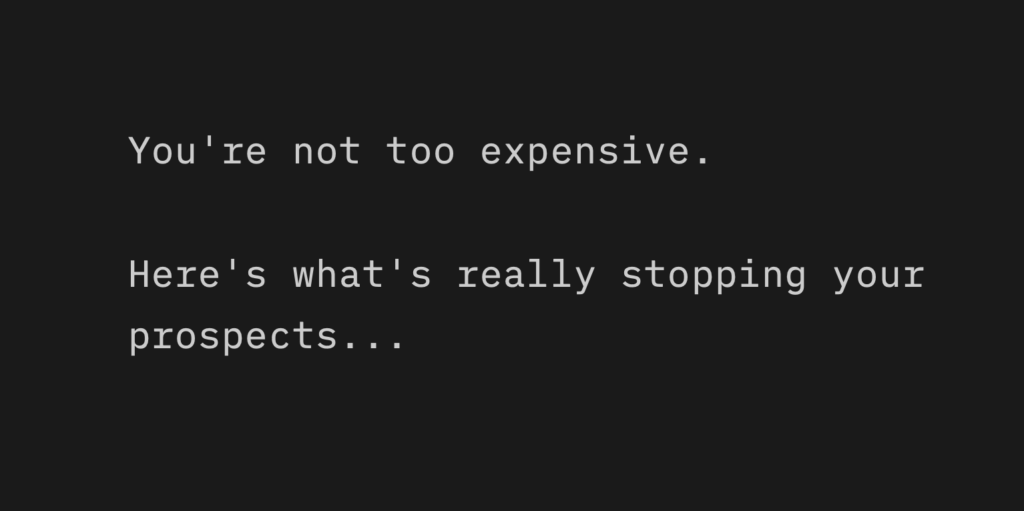
When you ask why they didn’t buy from you, prospective customers or clients often say that your prices are too high.
And it could be true.
However, it usually isn’t.
Here’s what you need to know.
Your prices are seldom the problem
Let’s start with some far more likely reasons for their decision.
- Your marketing could be suffering from Toxic Complexity. This is dangerous and extremely common.
- You might be marketing to the wrong people.
- You could be contacting them at the lowest point of their cash flow cycle.
- You could be asking people to make a decision before they have all the information they need.
- Your marketing could be failing to clearly demonstrate enough value, making your price seem higher than they expected.
- Your marketing promises could be too similar to those offered by your lower priced competitors.
- Your payment terms may not be flexible enough for them.
- Your branding could be positioning you as a lower priced provider than you actually are.
- You could be responding to enquiries too slowly.
And there are lots of other reasons. None of which have much to do with your prices or fees, and more to do with your marketing and how you sell your products or services.
It’s a trap
Lowering your prices can be tempting. It’s a quick and extremely easy way to make your products or services seem better value. But it’s a trap. A trap you need to avoid. A trap that can put your business in a dangerous race to the bottom. You do not want to be in a race to the bottom!
A far better alternative is to find out what’s actually causing people to think you’re too expensive. And to then focus on improving your marketing in those key areas.
If you’re not sure where to start looking for answers, the brief list above is a useful place to begin. Try to look at each item on that list from the perspective of a potential client. Remember, most prospects will have done at least some research. So check your competitors to see how your; services, marketing, payment terms, promises, guarantees, branding and response times, etc., stack up against theirs.
And make lowering your prices the very last thing you consider.